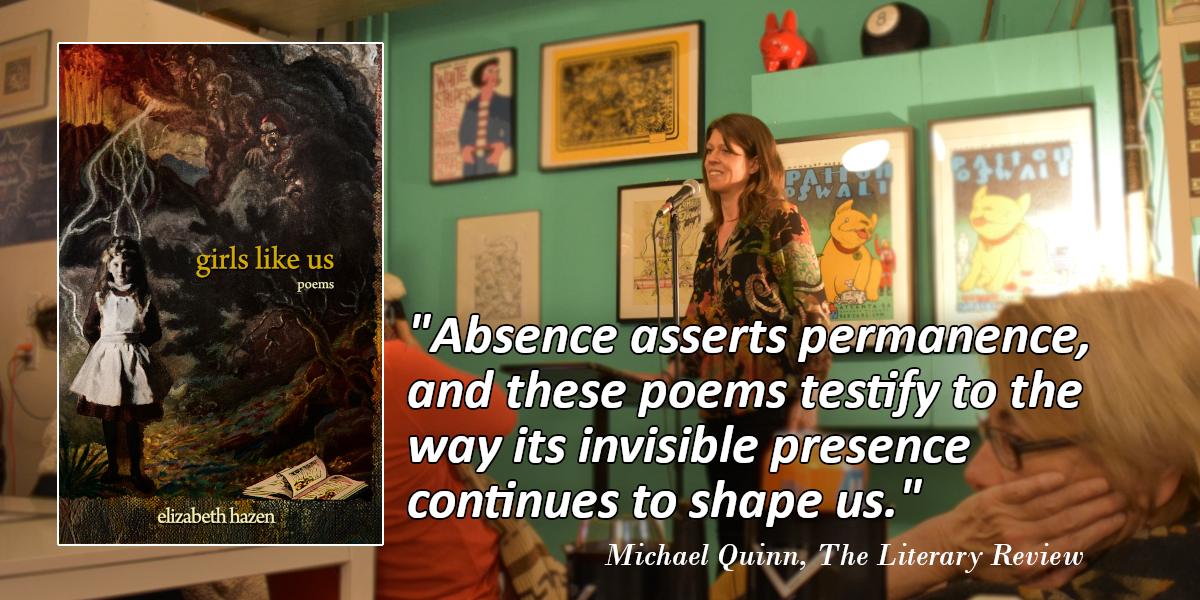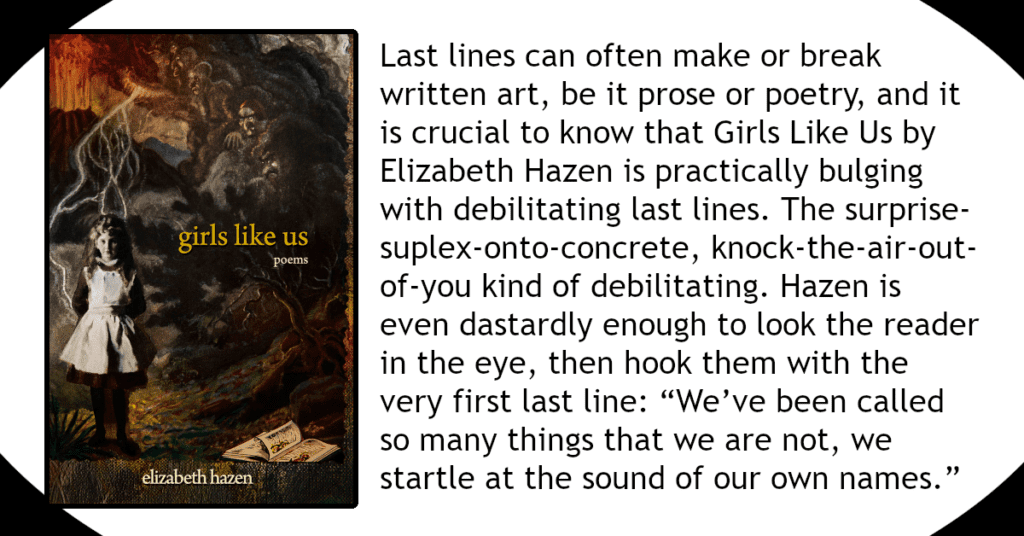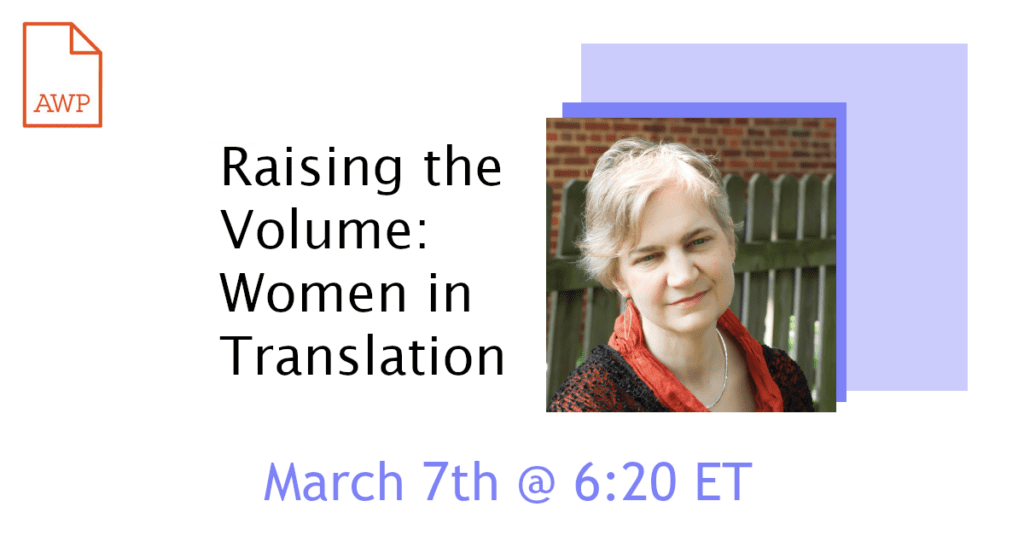TLR Delivers a Stellar Review of GIRLS LIKE US
Michael Quinn of TLR traces the arc of Elizabeth Hazen's new collection "The Last Girl" and discovers the ways in which "Absence asserts permanence."

A new review this week from The Literary Review traces the arc of Elizabeth Hazen's Girls Like Us from a "[focus] primarily on the self, [to] poems [that] are gradually consumed by a responsibility to others, primarily through motherhood and its all-consuming need to provide for and protect."
Motherhood, womanhood, girlhood, addiction, and identity all present themselves in different ways throughout this arc, and Brooklyn-based reviewer Michael Quinn deals deftly with each of them, analyzing bits and pieces of many poems which tell the story of Girls Like Us rather than lingering too long on one or two images. In doing so, Quinn is able to depict Girls Like Us as a book that refuses pigeon-holing and which dares to be complicated and often difficult.
This dedication is evident in Quinn's description of the cover of the collection, a collage by Lindsay Fleming, "Near the girl’s feet, a book lies on the ground with its pages blown open. An adventure awaits: dangerous, scary, exciting, confusing." And, in a more detailed way, it is evident in Quinn's short but revealing analyses of the Hazen's Diagnosis cycle:
'“Diagnosis I,” “Diagnosis II,” and “Diagnosis III” respectively depict three scenes. In the first, an unwell woman is assured by her male doctor that despite her undiagnosed source of pain, there’s nothing wrong with her. In the second, a young virgin’s group of male tormentors becomes her booze-supplying seducers. In the third, the past of a woman at midlife is thrown into relief when a drunk aggressively hits on her. “Girls like / you, he repeated, leaving me / a blank to fill.”'
New Review of Girls Like Us: GLU “Bulges with Debilitating Last Lines”
In Lannie Stabile’s new review of Elizabeth Hazen’s second collection Girls Like Us, she raves about the effect of Hazen’s “last lines.” Girls Like Us, she says, is “bulging with debilitating last lines.” Like this one in the opening poem “Devices,” that Stabile points to as like a “hook,” “We’ve been called so many things that we are not, we startle at the sound of our own names.”
New Poem by Elizabeth Hazen “Panic Attack” Lands in Failbetter
A new poem by Maryland standout Elizabeth Hazen has been published in the 62nd volume of Failbetter literary journal. The poem, titled “Panic Attack,” is dark and violent.
Attending AWP? Check out Katherine E. Young’s Panel on Women in Translation
Join Katherine E. Young at AWP to discuss women in translation and systems of exclusion.


